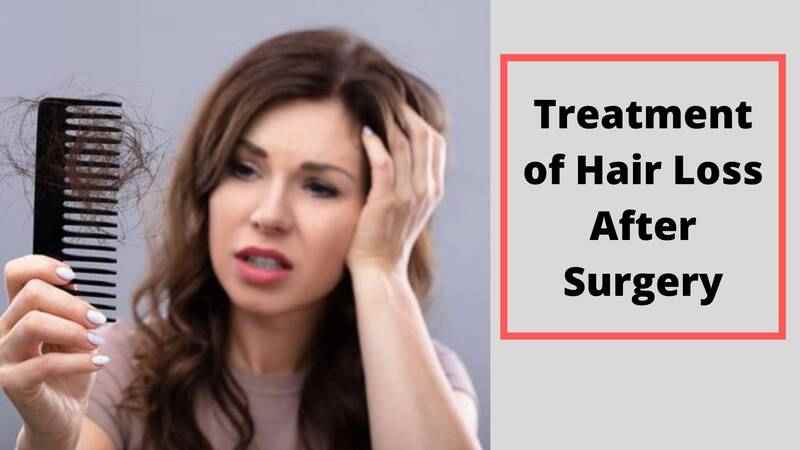Remedies for Hair Loss: What to Do and When to See a Doctor
Table Of Content

Other studies, such as by Rushton et al, also confirmed the possible link between telogen effluvium and iron deficiency (9). To prepare for the surgery, to aid recovery, and to deal with complications, the surgeon may prescribe certain medications. Even on their own, many of these medications can be enough to trigger telogen effluvium. Here, there is no growth and the cell activities remain minimal. Initially, the stationary club hair remains attached to the follicle. Meanwhile, a new anagen hair underneath the telogen hair is slowly forming.
When should I see my healthcare provider about a hair transplant?

Research has found that the longer you’re exposed to the anaesthetic, the more likely you are to develop hair loss. Women who undergo a surgical hysterectomy or ovary removal may find that the subsequent hormone changes (i.e. a drop in oestrogen) leads to hair changes. Female pattern hair loss and frontal fibrosing alopecia are more common following the menopause, which is why HRT can sometimes help with hair loss. You can have a free online consultation with our U.S. licensed doctors to see if a prescription hair loss medication is right for you. We provide medications for both men and women, and have oral and topical options.
Managing and Preventing Hair Loss After Surgery
Telogen effluvium is a type of sudden hair loss that results from emotional or physical shock, like a traumatic event, period of extreme stress, or a serious illness. It’s typical to lose between 50 and 100 hairs a day, according to the American Academy of Dermatology (AAD). With about 100,000 hairs on your head, that small loss isn’t noticeable. New hair normally replaces the lost hair, but this doesn’t always happen.
What? Another medical form to fill out?
Even if your hair loss is hereditary, there are treatments that exist that can help slow or reverse hair loss. If possible, talk with your doctor to address your concerns and rule out any serious underlying medical concerns that may be causing your hair loss. Alopecia areata is an autoimmune condition that causes your immune system to attack hair follicles, resulting in bald patches that can range from small to large. Female pattern baldness often results in thinning all over the scalp and might look like widening or thinning around the part. It typically occurs after age 65 but, for some females, it can begin early in their lives. Hair loss related to androgenic alopecia tends to happen gradually.
Products & Services
As long as the body is not in a chronic state of stress, the hair fall will eventually lessen. After six to nine months, the normal hair growth cycle will resume. Telogen effluvium is a form of hair loss characterized by an increase in telogen hairs.
The Association of Depression, Loneliness, and Internet Addiction Levels in Male Bachelor of Medicine, Bachelor of ... - Cureus
The Association of Depression, Loneliness, and Internet Addiction Levels in Male Bachelor of Medicine, Bachelor of ....
Posted: Tue, 28 Feb 2023 08:00:00 GMT [source]
someone has telogen effluvium?

Depending on the size of the transplant you’re getting, the process will take about 4 to 8 hours. You might need another procedure later on if you continue to lose hair or decide you want thicker hair. Like good health and youth, most of us take our locks for granted -- that is, until they're gone. For many people, a hair transplant can help bring back what looks like a full -- or at least a fuller -- head of hair.
From Mayo Clinic to your inbox
A well-balanced diet with essential nutrients like vitamins A, C, E, and B-complex, along with minerals like zinc, iron, and biotin, can support healthy hair growth. Additionally, staying hydrated helps maintain overall scalp health. Surgery increases the levels of cortisol surging through your body (also known as the primary stress hormone). Cortisol has been shown to disrupt the hair growth cycle, which leads to sudden hair loss [4].
Medical treatments commonly used for hair loss:
According to Dr. Doshi, hair transplants cost between $10K to $50K by top surgeons in the United States, in comparison to the $3,000 charged in Istanbul. Male-pattern hair loss is what causes a receding hairline and baldness in men. In women, female-pattern hair loss typically affects the crown or top of the head first, Mirmirani says. Women may notice that their part is becoming wider or that their scalp is more visible. A healthcare provider can confirm it during a physical examination of your scalp.
Effective treatments for some types of hair loss are available. With some conditions, such as patchy hair loss (alopecia areata), hair may regrow without treatment within a year. Most people will recover the majority of their hair after a few months, provided you focus on optimising your diet for healthy hair. Eating a protein-rich diet, taking any supplements recommended by your doctor, and living a healthy lifestyle can all help promote hair regrowth after bariatric surgery. Telogen Effluvium may lead to up to 70% of all hair strands being rapidly shed about 2-3 months after the stressful event.
7 glioblastoma myths - MD Anderson Cancer Center
7 glioblastoma myths.
Posted: Thu, 10 Jan 2019 08:00:00 GMT [source]
Pressure alopecia is often the cause of hair falling out if you’ve been in the hospital for a while. Laying down for long periods can restrict blood flow to the follicles, which may result in hair loss. In fact, it’s possible to see hair loss after any type of surgery, due to the stress involved in undergoing and recovering from an operation.
Psychologically, this can have a deeply upsetting, even alarming effect. To document the extent of their hair loss, patients often present to their doctors with a bag full of shed hair that they have collected. Any information you can provide about how quickly the hair loss occurred, along with any family history of baldness, will also be helpful. Newer treatments that are also being explored include some forms of laser therapy, microneedling with PRP, as well as other oral medications.
Anesthesia medications can disrupt the normal functioning of the hair follicles, leading to hair loss. The specific mechanisms behind this are not fully understood, but it is believed that anesthesia-induced stress and changes in blood flow to the scalp may play a role. Hair loss after surgery can be distressing and can affect a person’s self-esteem during an already challenging time. But, don’t worry, there are steps that can be taken to minimize or prevent this type of hair loss. In this article, we will explore the causes of hair loss after surgery, discuss various preventive measures, and offer solutions for post-surgery hair loss. If you notice severe or prolonged hair loss after surgery, it's important to consult a medical professional.
Comments
Post a Comment